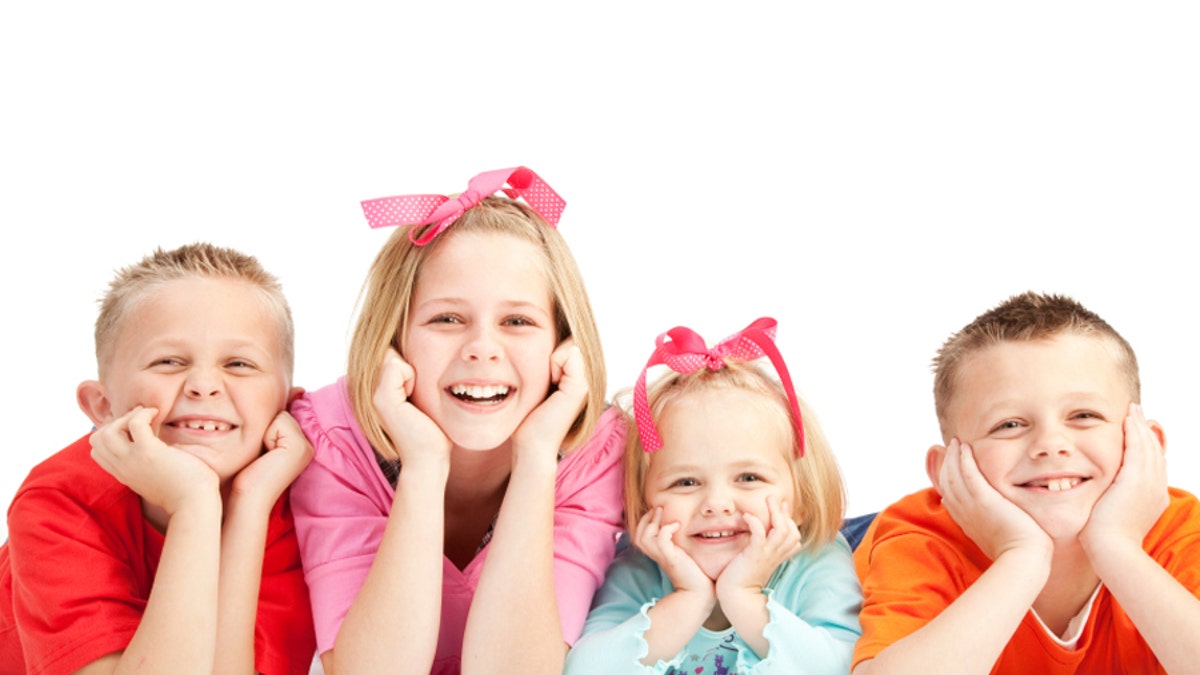
As parents, we try to keep our kids safe every moment of their lives. Whether by instilling in them the difference between good and evil or by making sure they know to look both ways before crossing the street, protecting children comes in many different forms.
For more than a decade, I’ve been working tirelessly to keep my kid and yours safe from the harm inflicted by environmental factors—whether floating in the air, swimming through the water supply, or injected into our foods.
Exposure to toxins is inevitable, and can cause a host of health problems from autism and thyroid disease to cancers and other lifelong health concerns. Fortunately, parents can play an active role in lessening the toxic burden on their little ones’ bodies.
• Feed your entire family a diet comprised of whole, organic, plant-based foods: fruits, vegetables, nuts, and what I like to call “super foods”—coconut oil, aloe vera, chlorella, goji berries, kelp, hot peppers, and raw cacao are packed with healthful components.
• The most lethal substances in the home are, more often than not, the liquids, creams, and sprays used to keep that home clean. It is paramount to use green cleaning products that disclose all ingredients; contain no known human carcinogens or endocrine disruptors; and are third-party tested and verified. Just because a label indicates something is “all natural” or “green” does not mean it is so: The practice of “greenwashing,” where manufacturers make bold claims of being green with no evidence to back it up, is rampant in the cleaning products industry.
• If you’re dealing with pesky bugs or rodents in your house or garden, make sure to avoid toxic pesticides. Long-term exposure to these chemicals has been linked to respiratory diseases like asthma, and to an array of neurological problems. Use natural alternatives, like sprays made from vegetable oils, vinegar and essential oils. You can make your own bug spray… fill an 8oz. empty spray bottle with essential oils of eucalyptus, lemongrass and purification oil and distilled water , spray lightly on clothes to repel mosquitoes.
• Few practices are more laden with chemicals than dry cleaning, which is not as “dry” as its name implies: Clothes are washed with a solvent called perchloroethylene, which the EPA considers a health and environmental hazard. Locate a dry cleaners shop in your neighborhood that uses greener methods like carbon dioxide cleaning, or “wet” cleaning with less noxious detergents. Remember to say “No PERCS” in my dry cleaning.
• Bisphenol A (BPA) has been getting a lot of attention in the news lately, primarily because the FDA denied a petition asking it to ban the controversial chemical, which hardens plastics and is a known endocrine disruptor. BPA is found in plastic bottles, children’s toys, and the lining of canned foods, to name just a few of its whereabouts. Just because the FDA won’t ban it doesn’t mean it has to enter your child’s system: Buy BPA-free labeled toys, choose glass baby bottles and minimize your use of canned foods.
• A similarly dangerous compound, polyvinyl chloride (PVC), is found in countless items children encounter: backpacks, lunch boxes, raincoats, even the vinyl flooring of your home. Not only has PVC flooring been linked to higher rates of autism, but PVC exposure is also associated with cancer, kidney damage, and development of the reproductive system. Look for products labeled PVC-free, and be wary of the word “vinyl.”
• Sleep soundly and buy yourself and your kids, pajamas, mattresses and bedding that is made of organic materials, and free of toxic flame retardants.
• Limit your family’s exposure to heavy metals like mercury, lead, nickel, cadmium and antimony. Heavy metals most commonly enter the human body through food, water, air, or skin absorption. Eating organic foods, drinking filtered water, and wearing clothing made of natural fibers are just some of the ways to ward against the negative health effects of heavy metals.
• Before and during pregnancy, women should pay particular attention to the toxins in their environment, and what they are putting in their bodies—both for their own health, and for the development of their unborn child. The smallest exposure to a dangerous chemical can have untold effects on the human body, to say nothing of the miniscule life forming deep inside. How a woman treats her body during pregnancy can—and will—have lifelong effects on her child’s well being.
There is no quick-fix for preventing certain diseases, deficits or other disorders, but avoiding carcinogens known to have toxic effects on the human body can’t possibly be a bad thing, particularly in light of the myriad health statistics that are in epidemic proportions in the U.S. today. As always, knowledge is power—arm yourself for the journey, and know you’re doing everything possible to keep safe the ones you love.
Deirdre Imus, Founder of the site devoted to environmental health, dienviro.org, is President and Founder of The Deirdre Imus Environmental Health Center™ at Hackensack University Medical Center and Co-Founder/Director of the Imus Cattle Ranch for Kids with Cancer. She is a New York Times best-selling author and a frequent contributor to FoxNewsHealth.com, Fox Business Channel and Fox News Channel.Check out her website at dienviro.org. 'Like' her Face book page here.
